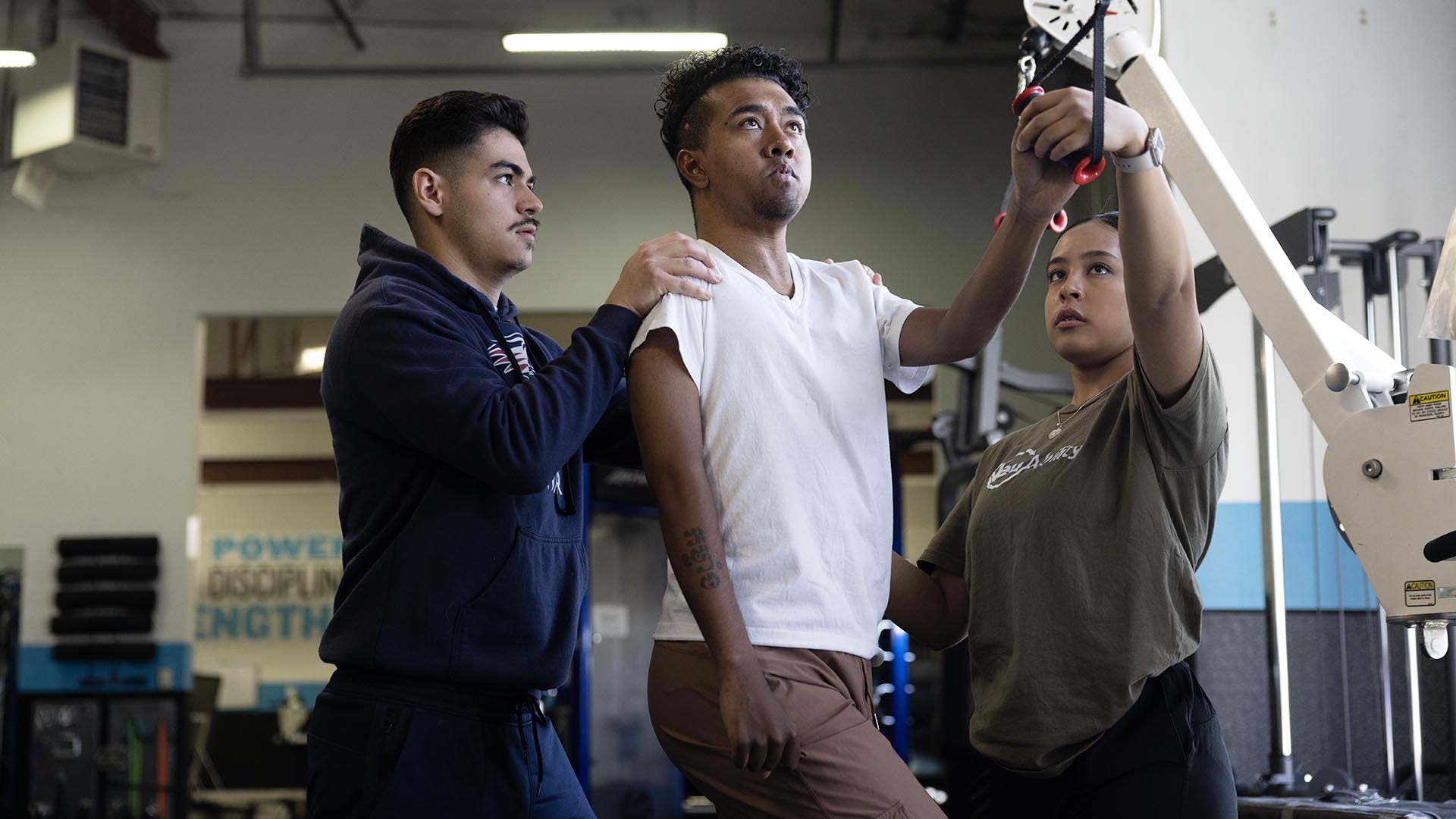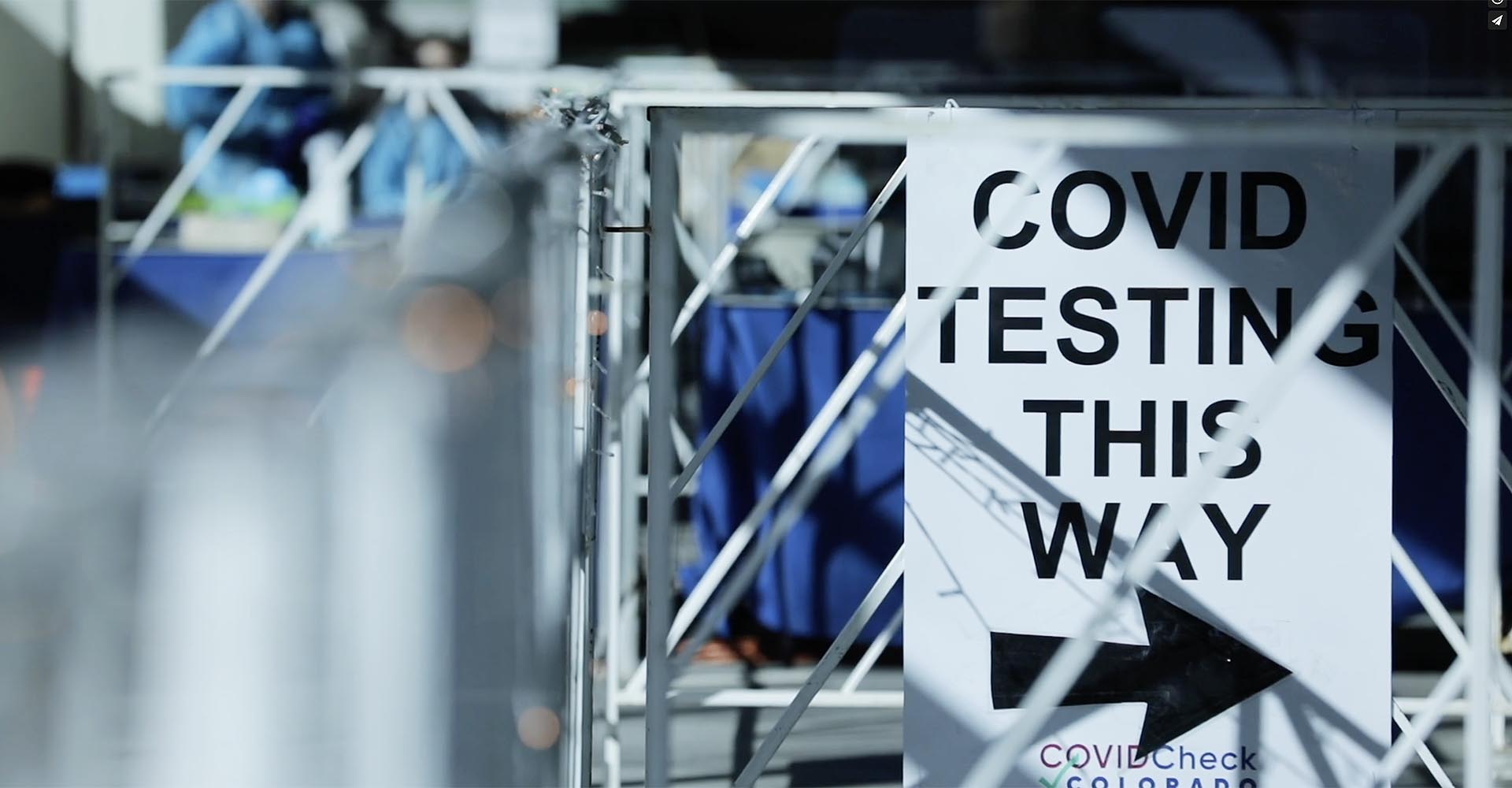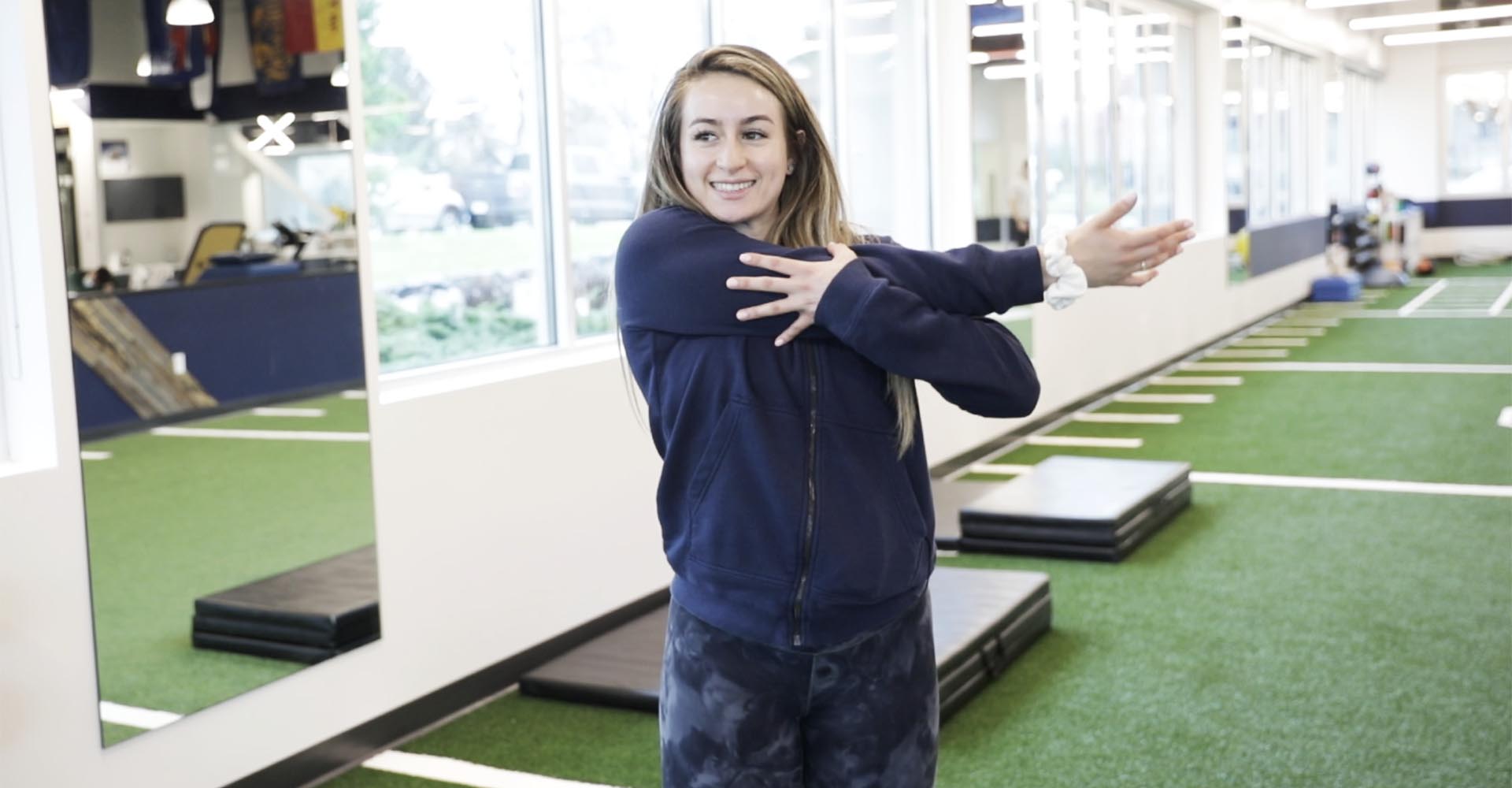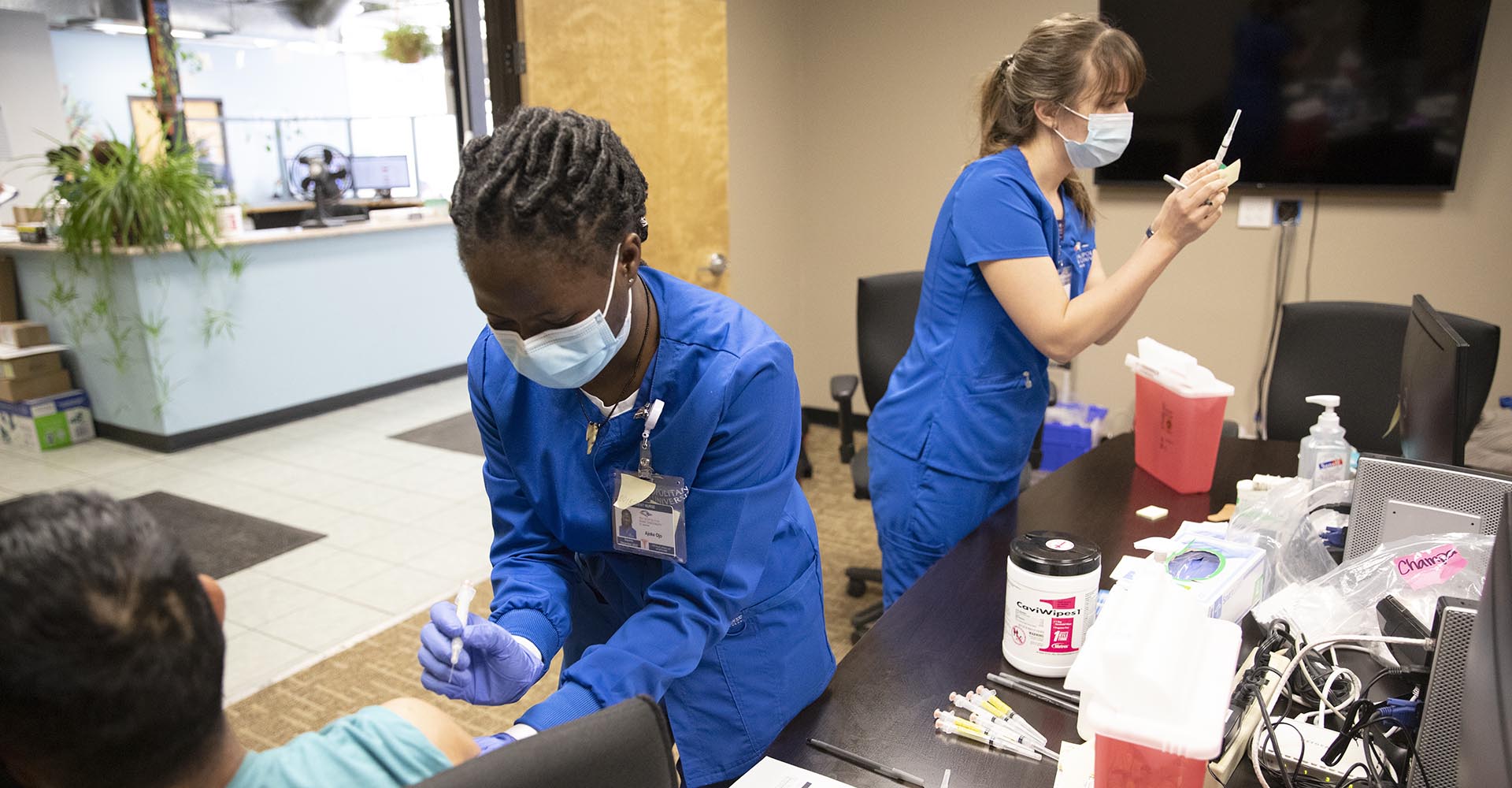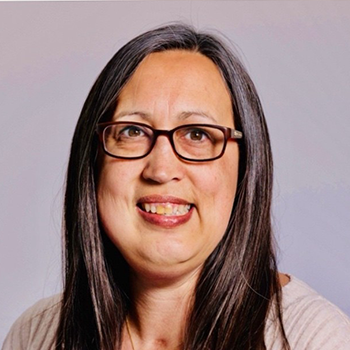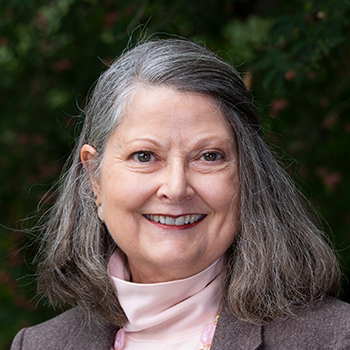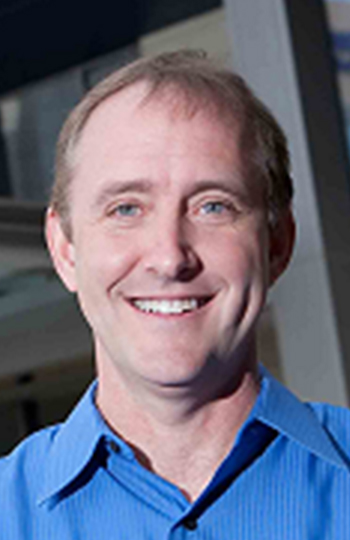VIDEO: Earning a diploma on COVID-19’s front lines
Nursing students join STRIDE Community Health Center to ramp up testing for coronavirus – and earn the clinical experience required for graduation.
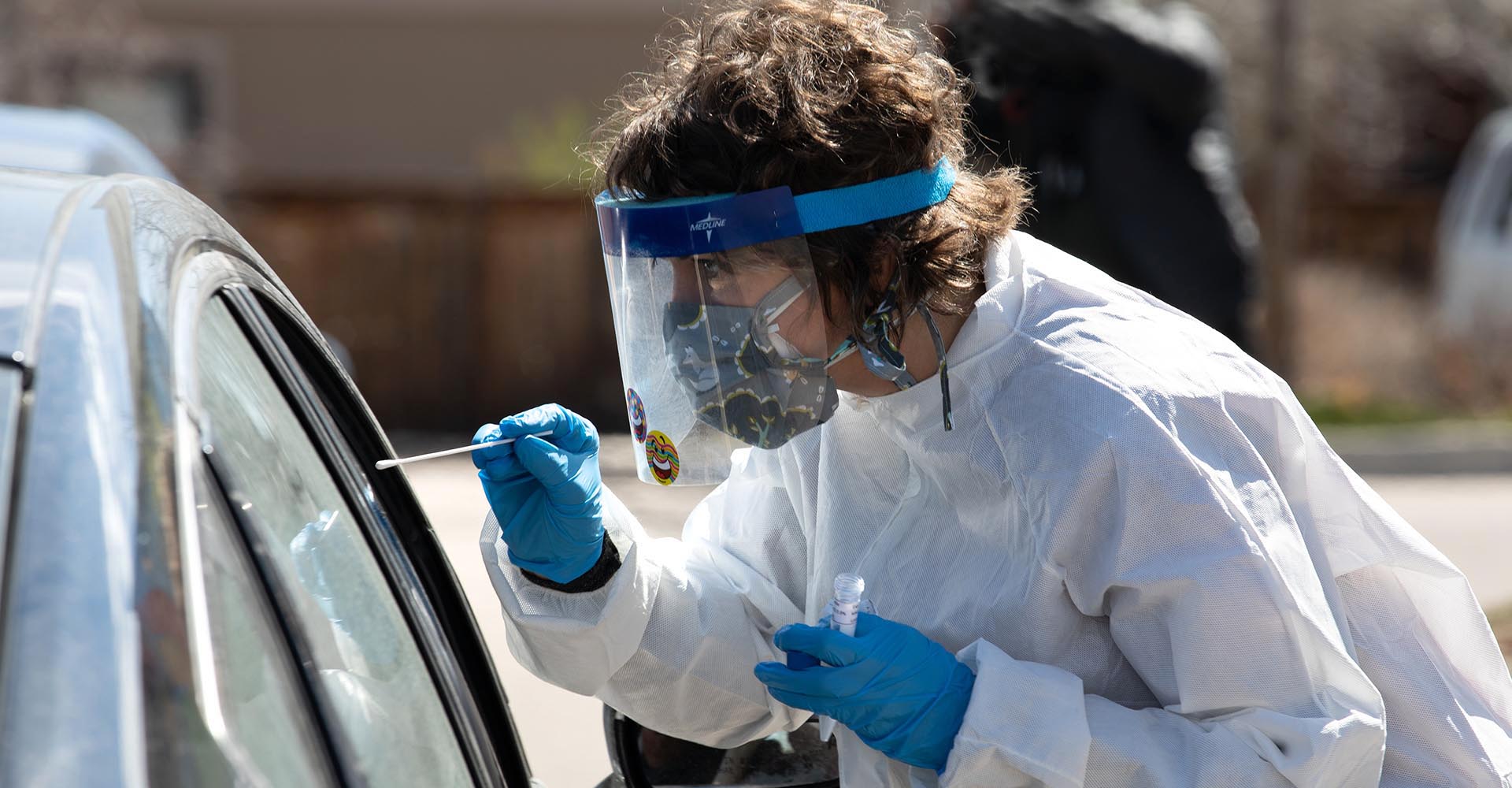

STRIDE Community Health Center’s mobile COVID-19 testing station in Wheat Ridge is helping Coloradans flatten the curve with a lift from Metropolitan State University of Denver nursing students such as Micahla Cowles.
She is among a cohort of Accelerated Nursing Option students working at the testing center thanks to a recently launched partnership between the department within MSU Denver’s Health Institute and STRIDE, a Federally Qualified Health Center providing primary care and other health-related services in suburban Denver since 1989. Their work on the front lines of the COVID-19 pandemic doesn’t just serve Coloradans; it also helps them meet the 180 practicum hours of clinical placement required to graduate.
The partnership formed amid a global health crisis that led to the widespread cancellation of rotational placements for nursing students nearing the end of their academic journey, said Theresa Buxton, Ph.D., RN, chair of the University’s Department of Nursing. MSU Denver jumped at the opportunity to place five students with STRIDE.
In addition to the placements, students are completing virtual simulations with Senior Experience course faculty to meet the 180-hour practicum requirements, Buxton said. But placements such as those available through the partnership with STRIDE are a great way to reimagine nurse-patient care as a practice that extends outside the hospital.
“Having (students) complete their senior practicum with STRIDE Community Health Center makes perfect sense, as these kinds of clinical opportunities prepare them for the role of a professional Registered Nurse,” she said.
Prepared for the future of health care
Decked out in a facemask, shield and two layers of gloves, Cowles and a colleague approach each car that comes to STRIDE’s mobile testing site and run through a screener checklist, collect information and process paperwork. Then, they collect test samples by swabbing the back of the tonsils or nasal passage; the specimen is then sent off in a sealed biohazard bag.
With current testing available, results are back within two to three days, Cowles said.
“There’s no room for error in any of the process,” she said. “Fortunately, there’s an amazing team of professionals here at STRIDE who’ve developed this system to serve people quickly and accurately.
“Getting to work alongside them and be part of this effort has been truly incredible.”

At a time when delivering widespread accurate COVID-19 testing is critical to helping the state and country reopen their economies, MSU Denver’s latest public-private partnership is vital for America’s future because nursing students are the future of health care, said Stephanie Campbell, RN/B.S.N./M.S.N., director of nursing with STRIDE.
“If we don’t provide these kinds of clinical opportunities when they’re needed most, that next generation of practitioners won’t have the applied knowledge we’ll need to rely on them for in the future,” she said.
Campbell lauded the students’ professionalism and was impressed by their willingness to jump in and learn on the fly.
“Usually, you have to spend time teaching folks because they’re green,” she said. “But (this group) isn’t green. On the first day, we were able to get them into PPEs (personal protective equipment) and they were able to start swabbing after a few observations.
“It’s fantastic to have people able to get to work right away.”

Positioned for large-scale transformation
Navigating the turbulence wrought by the COVID-19 pandemic with composure has proved to be a learning experience in its own right for Accelerated Nursing Option student Frida Smith-Hess.
She plans on using her degree to become a midwife and was set for placement at a hospital birthing center. Then COVID-19 struck, and everything changed.
MSU Denver Clinical Placement Manager Cecilia Cowart helped her land at STRIDE’s North Aurora community health center, which does COVID-19 testing in addition to more routine medical procedures, as health needs don’t just pause when there’s a pandemic. In addition to information outreach Smith-Hess is seeing patients for pregnancy needs, which she said is one of her favorite parts of the experience.
Though it’s not what she planned, Smith-Hess said she’s optimistic about how this experience along with her MSU Denver education will position her for a future in an industry in the midst transformation. Health care, she said, will likely experience large-scale transformation for infection-control protocols and organizational structure.
“I believe this situation will change health care forever,” Smith-Hess said. “Being part of this response means I’ll be at the forefront of a new wave of nurses coming in.”
Health care’s future is being written as we speak, thanks to partnerships such as this one between MSU Denver and STRIDE, she said. And though she doesn’t necessarily anticipate a career in administering nasal swabs, the ability to plug into critical care is invaluable during a time when it’s needed most.
“There’s no skill you can learn that’s not going to be useful,” Smith-Hess said. “The lessons I’m getting now will be useful the rest of my life; first and foremost, that, in whatever the situation, my job is to go where the need is and serve.”

